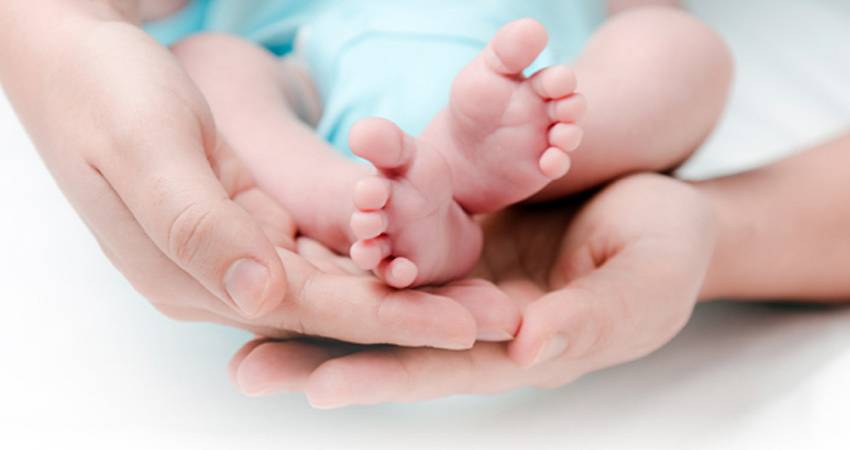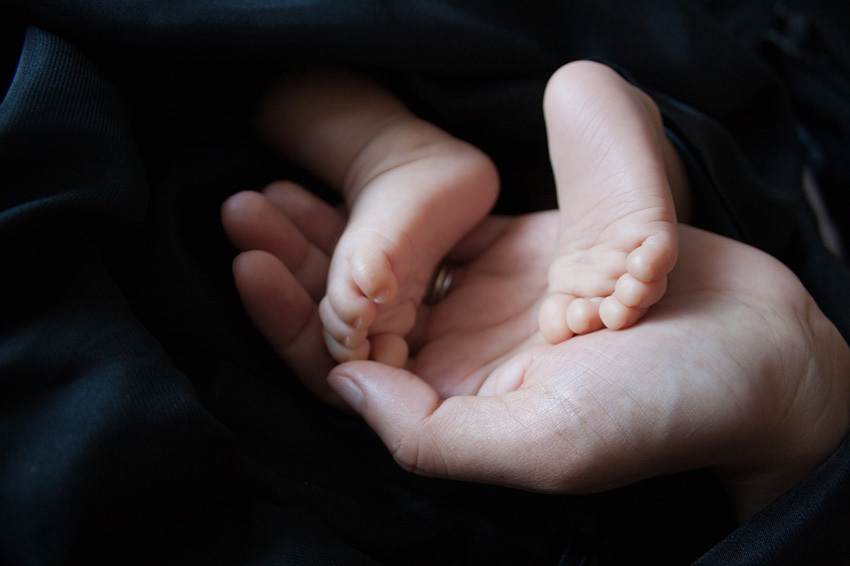
Parents deserve truth about fatal foetal abnormalities
A version of this article appeared in the Irish Independent on 25 November 2013
Hearing that your unborn baby has a serious or terminal illness is amongst the worst news a parent will ever have to face.
Every parent in this devastating situation deserves not just our sympathy but our support, as do their unborn babies, who are our most vulnerable and special children. However, parents also deserve to be properly and fully informed, and the misinformation being circulated in the current debate on this issue is very unhelpful.
Most media outlets reported this week that an estimated 1,500 women receive a diagnosis of fatal foetal abnormality every year, with 80pc then having an abortion outside the State.
This claim – that 1200 abortions for fetal anomalies are sought each year by Irish women – is absolutely incorrect. It’s a wildly inaccurate figure, as the official statistics reveal.
In 2011, the actual figure was nowhere near 1200 abortions. It was actually 36.

We know this because the British Department of Health keeps excellent records in relation to abortion. All abortions carried out on Irish women for reasons of disability are recorded meticulously – right down to the condition diagnosed. In fact, the conditions currently being described as ‘fatal fetal abnormalities’, such as anencephaly, Trisomy 18 (Edwards Syndrome), Patau’s Syndrome etc, are separated out in the official reports from the Department.
Those reports are very clear: in 2011 there were 36 abortions carried out on Irish women for these conditions. A further 14 abortions took place for conditions such as Downs Syndrome and Spina Bifida, but they are not considered terminal or fatal conditions. In 2010, the number of abortions was slightly higher, in 2009 it was slightly lower.
This discrepancy is simply astonishing, yet this newspaper is the only media outlet to make any attempt to correct the inaccuracy. So let’s set the record straight. On average, fewer than 50 abortions per year take place on Irish residents for reasons of fatal anomalies.
It seems than more than 90% of Irish mothers or families facing this devastating news do not abort their babies.
In sharp contrast to the Irish experience, research shows that, in Britain, up to 90% of children with disabilities – including conditions such as Downs Syndrome – are aborted. Of course, many of these are late abortions, a very distressing and traumatising experience.
So where the law prevents abortion, parents are far more likely to choose life, and I have never met a mother who regretted a single moment spent with her baby, even if they only had the briefest time after birth together.
Which brings us to another area of misinformation: most children diagnosed with these conditions do, in fact, live after birth. Elaine Fagan, an Irish child born with Trisomy 18 (or Edwards Syndrome) lived a wonderfully full life until she passed at the age of 25. Elaine was a rare exception, but studies have shown that the average duration of survival for children with Trisomy 18 was 14.5 days; with 38.6% of babies surviving for more than a month, while 8.4% survived for more than a year.
Likewise, 72% of babies with anencephaly lived for a short time after birth, with 25% of those children living up to 5 days.
These babies are not ‘incompatible with life’, no child is. They are terminally ill, and their parents deserve more than our sympathy, they need our support.
Some media commentators have used the most appallingly insensitive and cruel language this week, with one journalist describing women who carry terminally ill babies to term as having the status of “insentient incubators” who either gave “birth to a corpse” or “watch their baby struggle for breath for excruciating seconds before it dies in their arms”.
These are medically ignorant statements, which feed into a wider cultural failure to provide for families whose unborn babies are terminally ill. As any palliative care expert will confirm, any discomfort felt by these sick babies after birth is minimised by expert care. That’s why families are now joining together to seek perinatal hospice services in every maternity unit and hospital in the country.
The good news is that perinatal hospice services are relatively easy to make available and are not costly to maintain. Most is all, they allow parents the gift of time with their children: to make memories, to hold and love their babies, to make every moment count. Many parents believe that’s a better answer than abortion. And all parents deserve the right not to be misinformed.
LINKS
Featured
- How campaigners dropped the ‘fatal’ from ‘fatal foetal abnormalities’ in push for abortion
- RTÉ Investigates turns a blind eye to 38,000 babies aborted and other grim realities
- After Limerick case, medics write to every TD to warn ultrasounds must be provided before abortion
- Irish MEPs join EU lawmakers in voting to enshrine abortion as a fundamental right
- Every TD and Senator contacted re Limerick abortion scandal
- Stop the Cover-Up or Women Will Die
- Horror in Prague: A hospital aborted the baby of the wrong mother
- Why are the media ignoring the abortion scandal that almost killed a woman?
- Limerick: woman who was prescribed abortion pills had life-threatening ectopic pregnancy
- Rally for Life 2024
- Exposing the Numbers
- Alive and Kicking: Your baby before 12 weeks


























